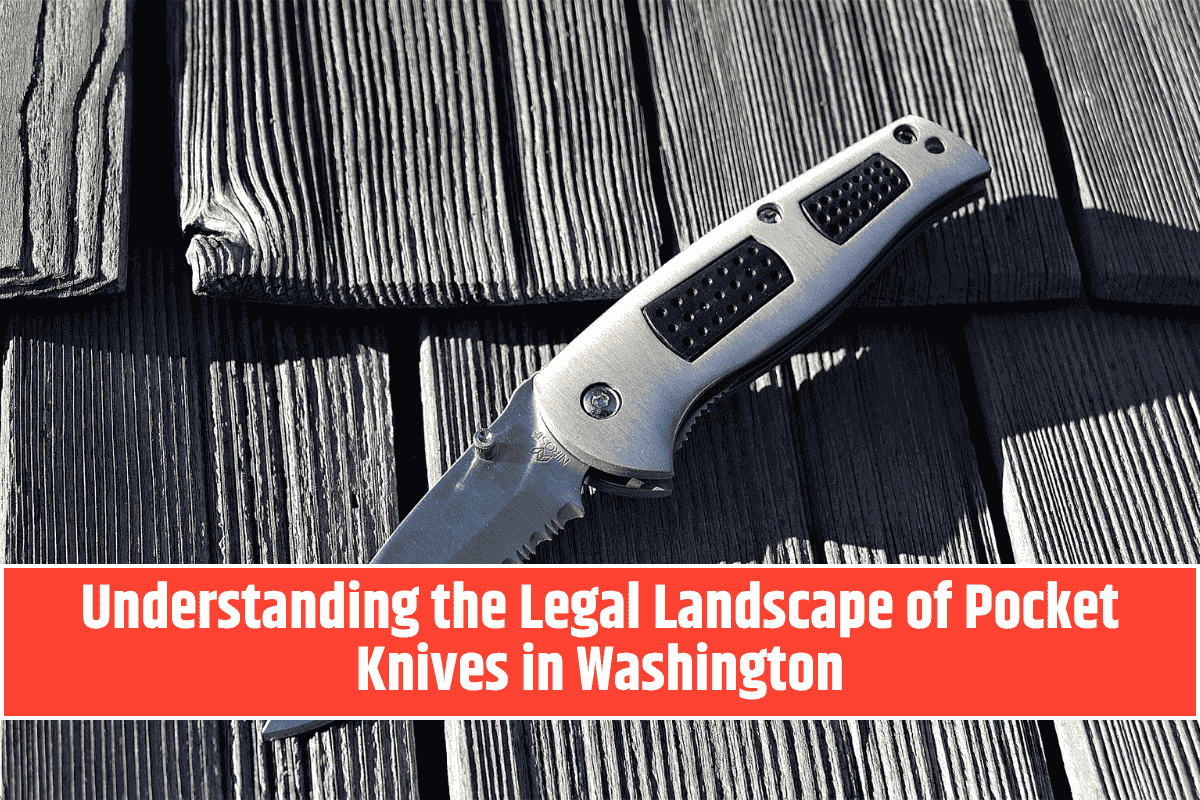Carrying a pocket knife may seem harmless, but in Washington state, there are several laws that control which knives are legal, where you can carry them, and how they should be used.
The main idea behind these laws is to ensure public safety while still allowing people to carry knives for work, recreation, or collection.
If you live in Washington or plan to visit, it’s important to understand the knife laws so you don’t accidentally break them.
What Types of Knives Are Legal in Washington?
In Washington, many knives are legal to own and carry, including:
Pocket knives
Folding knives
Utility knives
Bowie knives
Daggers
Dirks
Stilettos
You can usually carry these openly without trouble, but the way you carry them and where you carry them matters a lot.
Illegal Knives in Washington
Some knives are completely banned in the state. These include:
Switchblades or spring blade knives
Knives that open automatically by gravity or wrist flick
Butterfly knives (also called Balisong knives)
These are considered dangerous and are not allowed, whether you carry them openly or not.
Open Carry vs Concealed Carry in Washington
Open carry means the knife is visible. Washington generally allows this, but if the knife makes people feel threatened, especially in cities like Seattle or Tacoma, you could face issues.
Concealed carry means hiding the knife in a way that it’s not easily seen. In Washington, you can’t hide a knife with a blade longer than 3.5 inches, unless you’re using it for hunting, fishing, or work. Carrying a knife secretly without a legal reason can lead to criminal charges.
Knife Laws for Minors
There is no official age limit to buy a knife in Washington. However, people under 18 might not be allowed to carry dangerous knives without adult supervision. Also, many cities have their own rules about kids carrying knives, especially in public places or near schools.
Where Knives Are Not Allowed
Knives are strictly banned in many places, including:
Schools (public and private)
School buses
Courthouses
Law enforcement buildings
Airports
Government offices
Places restricted by age (like bars or clubs)
Carrying a knife in any of these places, even if it’s small, could result in fines or even arrest.
Using a Knife in a Crime
If you use a knife to threaten or scare someone, it becomes a criminal offense. In Washington, showing or using a knife to intimidate someone is illegal, and you could be charged with assault with a deadly weapon. It doesn’t matter what kind of knife it is—the way you use it matters most.
Special Situations Where Knives Are Allowed
There are some exceptions to the law:
Hunting or Camping – You’re allowed to carry knives for outdoor activities.
Self-Defense – If you’re in real danger, you may use a knife to protect yourself, but only if the force is reasonable.
Collectible or Antique Knives – These are usually okay to own or display, but avoid carrying them in public places.
Local Rules and Blade Length Limits
Some cities in Washington, like Seattle, Tacoma, and Vancouver, have local rules. They often ban knives longer than 3.5 inches, even for open carry. Always check local laws before carrying a knife, even if it’s legal in other parts of the state.
Real Cases and Legal Examples
State v. Byrd – The court overturned a knife-related assault case because the jury wasn’t told clearly that intent mattered.
City of Seattle v. Evans – A man carrying a small kitchen knife (paring knife) was charged. The court said the knife wasn’t protected under the right to bear arms.
State v. Myles – A woman’s knife charge was dropped because there wasn’t enough proof that she hid the knife to avoid being noticed.
These cases show how knife laws are complex and depend on how, why, and where you carry a knife.
In Washington state, owning and carrying a pocket knife is usually legal, but there are important rules to follow. You can carry many knives openly, but concealed carry of larger knives is often restricted. Some knives, like switchblades and butterfly knives, are banned altogether.
Carrying knives in schools, airports, or government buildings is not allowed. Also, if you use a knife in a threatening way, you could face serious criminal charges.
It’s always a good idea to stay informed, follow local laws, and carry knives responsibly. Whether you’re using a knife for work, camping, or just for collection, understanding the legal rules in Washington will help you stay safe and avoid trouble.












